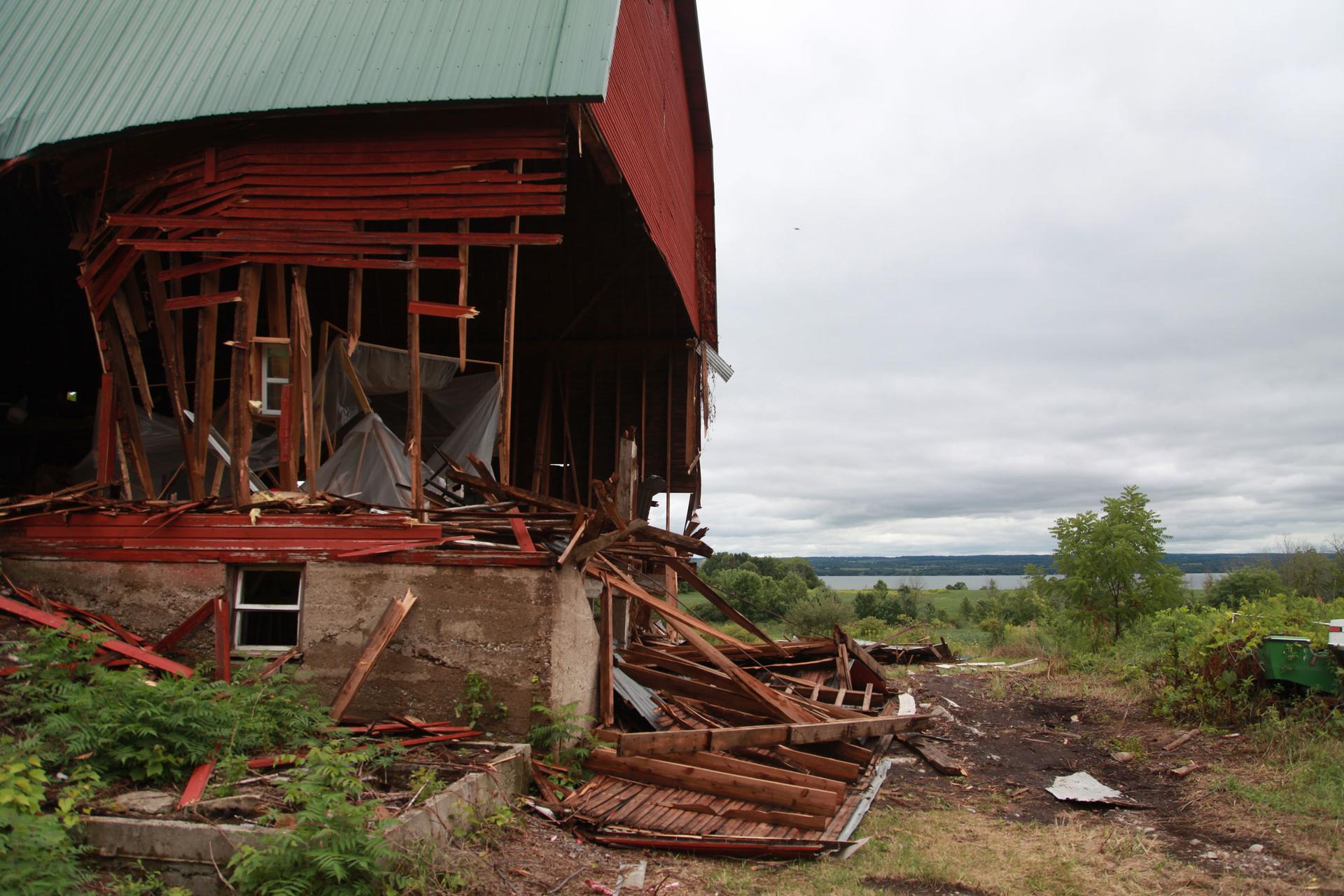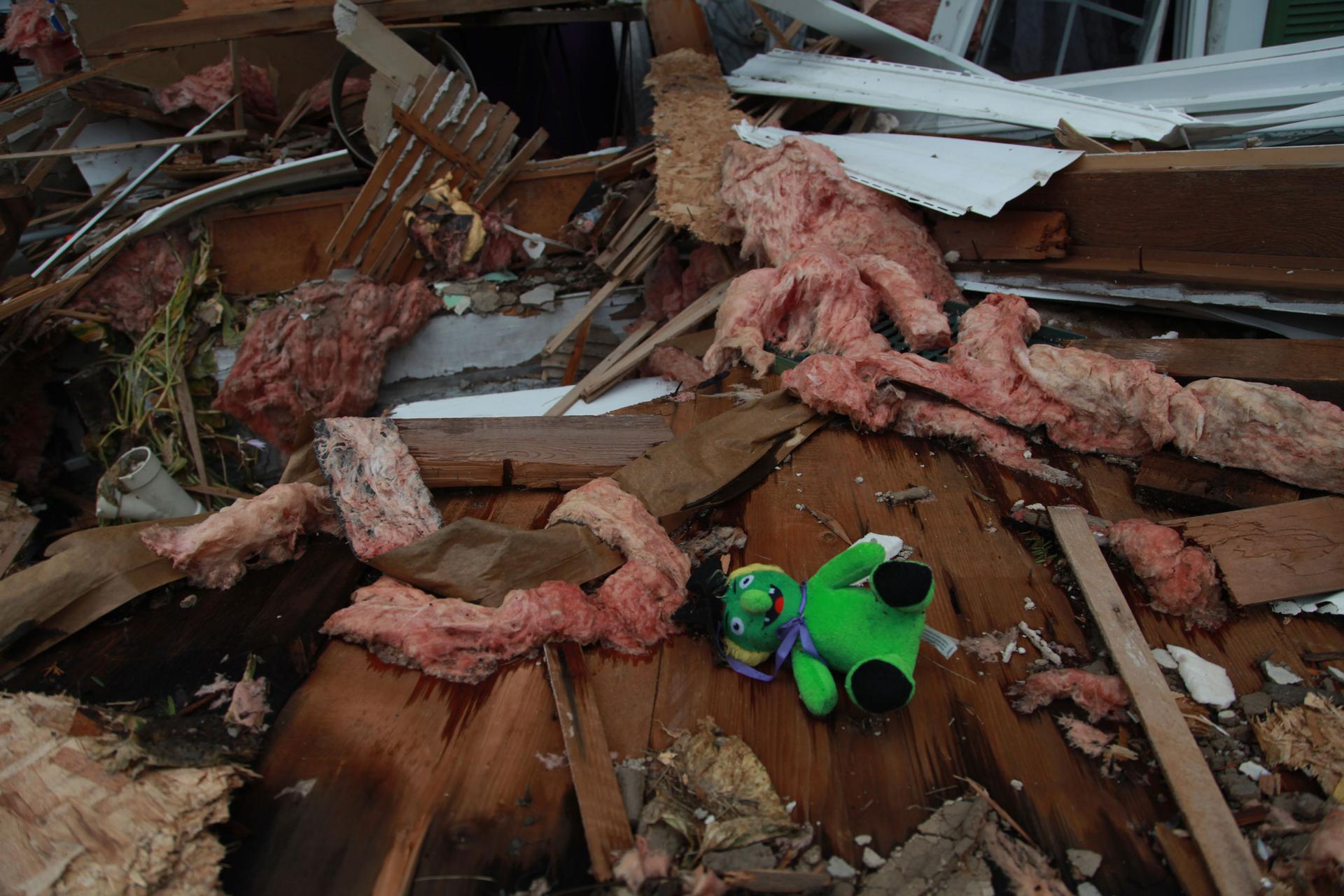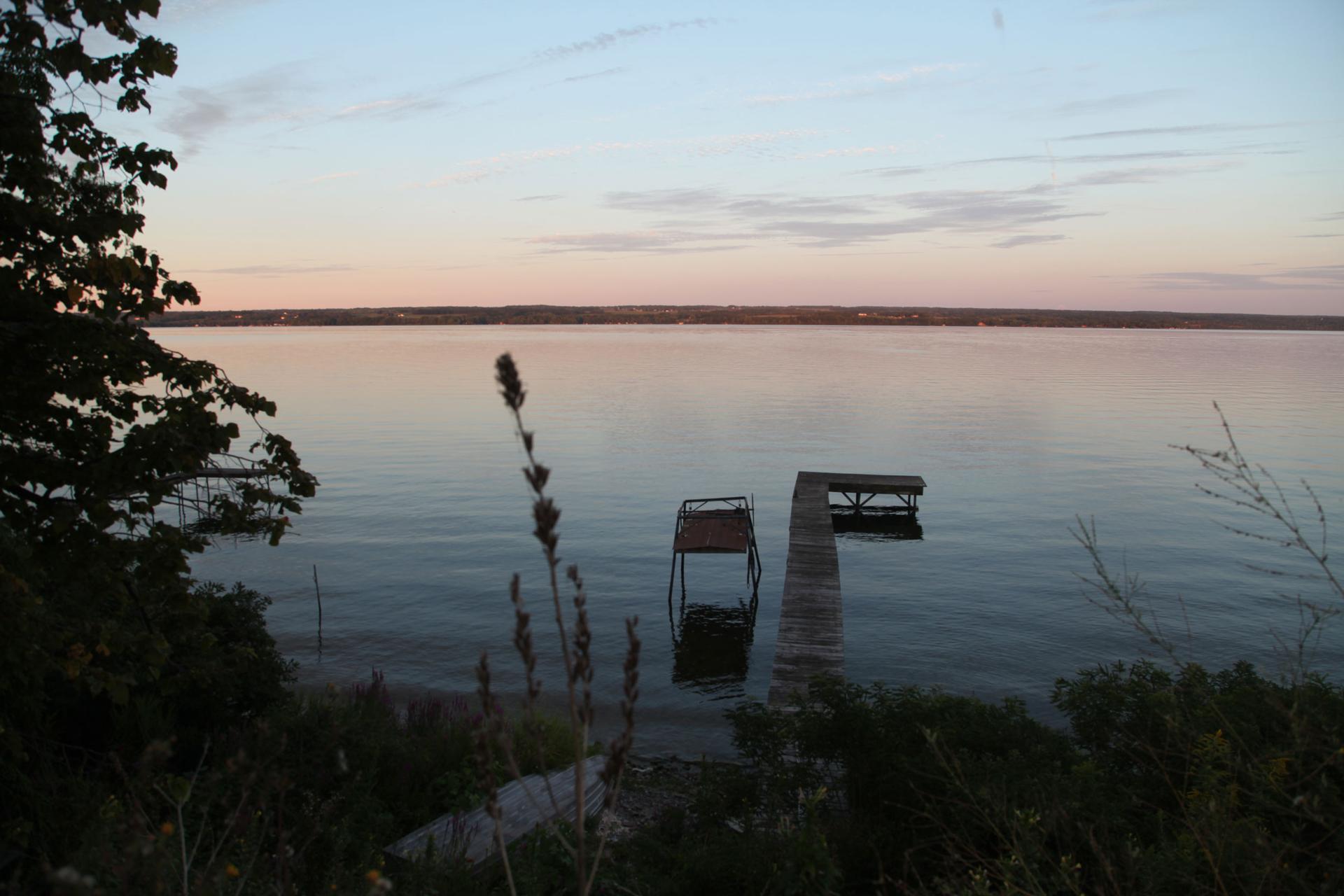A leadership dispute flares in Cayuga Nation amid evictions, arrests and demolitions
It was August in the Finger Lakes region of western New York, and Leanna Young said the corn in the vegetable garden had been coming in well.
She and her community grew it for food and for ceremonial purposes. Until the bulldozer came.
“They drove the bulldozer right up and into there,” Young said, pointing at a barn agape with splintered walls. “And that’s a medicine space.”
A farmhouse on the same property was also destroyed in early August.
A series of evictions, arrests and house demolitions in recent months is only the latest salvo in a longtime leadership dispute within the Cayuga Nation.

There are about 500 enrolled members of the Cayuga Nation, but it’s estimated that thousands more with Gayogohó:no ancestry are scattered across New York, other parts of the United States, and Canada.
Young said the property, known as the Varick house, served as a community center — that the barn was being used as a traditional longhouse for ceremonies and as a school to learn the Cayuga, or Gayogohó:no language.

Children’s art hung on the broken walls. Toys, photos and personal letters were scattered amid the wreckage.
“This house was full of love,” said Charity Jones, an enrolled Cayuga Nation member.
To hear more of this story, click on the audio player above.
